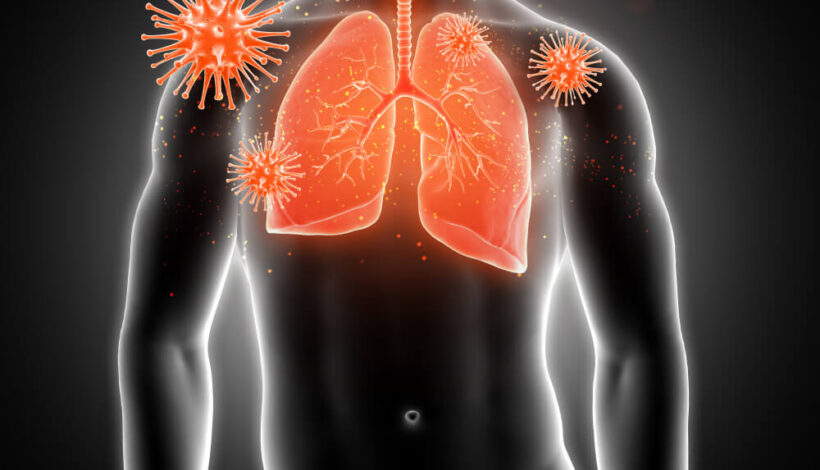Bronchitis, a common respiratory condition affecting millions worldwide, can significantly impact daily life, causing discomfort, coughing, and breathing difficulties. With over 25 years of specialized practice in respiratory medicine, infectious diseases, and tuberculosis, Dr. Kumar Doshi offers invaluable insights into understanding bronchitis, its causes, symptoms, diagnosis, treatment, and management strategies. In this comprehensive article, we explore bronchitis and Dr. Doshi’s expert guidance on managing this respiratory condition effectively.
What is Bronchitis?
Bronchitis is an inflammatory condition of the bronchial tubes or airways, characterized by swelling, irritation, and increased mucus production, leading to coughing, wheezing, chest discomfort, and breathing difficulties. Dr. Doshi explains that bronchitis can be acute (short-term) or chronic (long-lasting), caused by various factors, including viral infections, bacterial infections, irritants, smoking, and underlying respiratory conditions, requiring prompt diagnosis and appropriate treatment to control symptoms, prevent complications, and support respiratory health.
Causes of Bronchitis
- Viral Infections: Acute bronchitis is commonly caused by viral infections, such as colds, flu, respiratory syncytial virus (RSV), and adenovirus, leading to airway inflammation, mucus production, and bronchial irritation. Dr. Doshi emphasizes the importance of practising good respiratory hygiene, receiving annual flu vaccinations, and following infection control measures to reduce the risk of viral infections, protect respiratory health, and manage acute bronchitis effectively.
- Bacterial Infections: Bacterial infections, such as Mycoplasma pneumoniae, Bordetella pertussis (whooping cough), and Streptococcus pneumoniae, can also cause bronchitis, leading to severe symptoms, systemic complications, and respiratory distress. Dr. Doshi recommends identifying underlying bacterial infections, performing diagnostic tests, and implementing targeted antibiotic therapy to treat bacterial bronchitis effectively, reduce inflammation, and promote lung healing.
- Irritants and Environmental Factors: Exposure to irritants, such as cigarette smoke, air pollution, chemical fumes, dust, allergens, and weather changes, can irritate the airways, exacerbate bronchitis symptoms, and trigger bronchial inflammation in susceptible individuals. Dr. Doshi underscores the importance of avoiding exposure to respiratory irritants, using air purifiers, wearing masks, practicing allergen avoidance, and monitoring air quality to protect lung health, reduce inflammation, and manage bronchitis effectively.
Symptoms of Bronchitis
- Respiratory Symptoms: Common respiratory symptoms of bronchitis include persistent coughing (with or without mucus), wheezing (whistling sound during breathing), chest discomfort or tightness, shortness of breath, rapid or shallow breathing, and increased mucus production, indicating bronchial inflammation, irritation, and reduced lung function. Dr. Doshi emphasizes the importance of recognizing bronchitis symptoms, monitoring breathing patterns, and seeking medical evaluation to identify underlying causes, assess lung function, and implement appropriate treatment strategies.
- Systemic Symptoms: Systemic symptoms of bronchitis may include fever, chills, fatigue, muscle aches, headaches, sore throat, nasal congestion, and loss of appetite, indicating systemic inflammation, immune response, and infection affecting overall health and well-being. Dr. Doshi recommends monitoring systemic symptoms, staying hydrated, resting, and seeking medical attention if symptoms persist, worsen, or are accompanied by severe respiratory distress.
Diagnosis and Treatment of Bronchitis
- Diagnostic Tests: Dr. Doshi emphasizes the importance of performing diagnostic tests, such as chest X-rays, sputum culture, blood tests, pulmonary function tests (PFTs), and imaging studies, to identify bronchitis, assess lung involvement, determine underlying causes, and develop personalized bronchitis treatment plans according to Dr. Doshi’s expert guidance.
- Treatment Strategies: Implementing targeted treatment strategies, including supportive care (rest, hydration, humidification), bronchodilators (short-acting and long-acting), corticosteroids (inhaled or oral), antibiotics (for bacterial bronchitis), oxygen therapy, respiratory therapies, nebulizers, and inhalation devices, according to Dr. Doshi’s expert guidance, can help manage bronchitis symptoms, reduce inflammation, control bronchial irritation, prevent complications, and support respiratory health.
- Management and Prevention: Dr. Doshi recommends developing personalized bronchitis management plans, practising good respiratory hygiene, including handwashing, covering coughs and sneezes, avoiding close contact with sick individuals, maintaining a healthy lifestyle, managing chronic conditions, practicing allergen avoidance, using air purifiers, wearing masks, monitoring air quality, and following preventive measures to manage bronchitis effectively, reduce recurrence, protect respiratory health, and ensure long-term respiratory health and vitality.
Conclusion
Understanding bronchitis, recognizing symptoms, identifying triggers, implementing targeted treatment strategies, and following Dr. Kumar Doshi’s expert guidance on diagnosis, treatment, and management are essential for managing this respiratory condition effectively, controlling symptoms, reducing inflammation, preventing complications, and ensuring long-term respiratory health and vitality.
By understanding bronchitis, seeking timely medical attention, following recommended treatment regimens, practicing preventive measures, and embracing a proactive approach to respiratory care, you can take proactive steps to protect, support, and optimize lung function, ensure optimal respiratory health, vitality, and quality of life, and benefit from Dr. Doshi’s expert advice on bronchitis and respiratory well-being.




